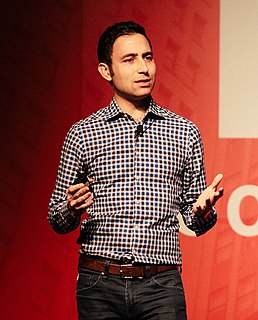A Quote by Kenneth Frazier
I do worry that as we try to fix this long-term debt and deficit situation that we don't destroy the market incentives for biomedical research. What I fear is the government using its considerable clout to say, 'Here's the price we're setting for your medicines.'
Related Quotes
The elimination of horrible disease, the increase of the quality of lives (for humans and for animals) achieved through research using animals is so incalculably great that the argument of these critics, systematically pursued, establishes not their conclusion but its reverse: to refrain from using animals in biomedical research is, on utilitarian grounds, morally wrong.
We have a structural problem because you can simultaneously understand the medium to long-term risks of climate change and also come to the conclusion that it is in your short-term economic interest to invest in oil and gas. Which is why, you know, anybody who tells you that the market is going to fix this on its own is lying to you.
This nation is on a course where if we don't do something about it, get federal situation, the fiscal policy [under control], we're Greece. We're a banana republic. Our status as a nation is threatened by what we’ve got coming at us in the area of deficit and debt. And it’s only a few more years, at the most, that we have to work with here before the market says, ‘Sorry, your currency is something we can not continue to defend.’
In the distance, I see a frightful storm brewing in the form of un-tethered government debt. I choose the words -“frightful storm' - deliberately to avoid hyperbole. Unless we take steps to deal with it, the long-term fiscal situation of the federal government will be unimaginably more devastating to our economic prosperity than the subprime debacle and the recent debauching of credit markets that we are working right now so hard to correct.
Say that Congress legislates gasoline price controls that sets a maximum price of $1 a gallon. As sure as night follows day, there'd be long lines and gasoline shortages, just as there were in the 1970s. For the average consumer, a $1.60 a gallon selling price and no waiting lines is a darn sight cheaper than a controlled $1 a gallon price plus searching for a gasoline station that has gas and then waiting in line. If your average purchase is 10 gallons, and if an hour or so of your time is worth more that $6, the $1.60 a gallon free market price is cheaper.
If you go back to Adam Smith, you find the idea that markets and market forces operate as an invisible hand. This is the traditional laissez-faire market idea. But today, when economics is increasingly defined as the science of incentive, it becomes clear that the use of incentives involves quite active intervention, either by an economist or a policy maker, in using financial inducements to motivate behavior. In fact, so much though that we now almost take for granted that incentives are central to the subject of economics.

































